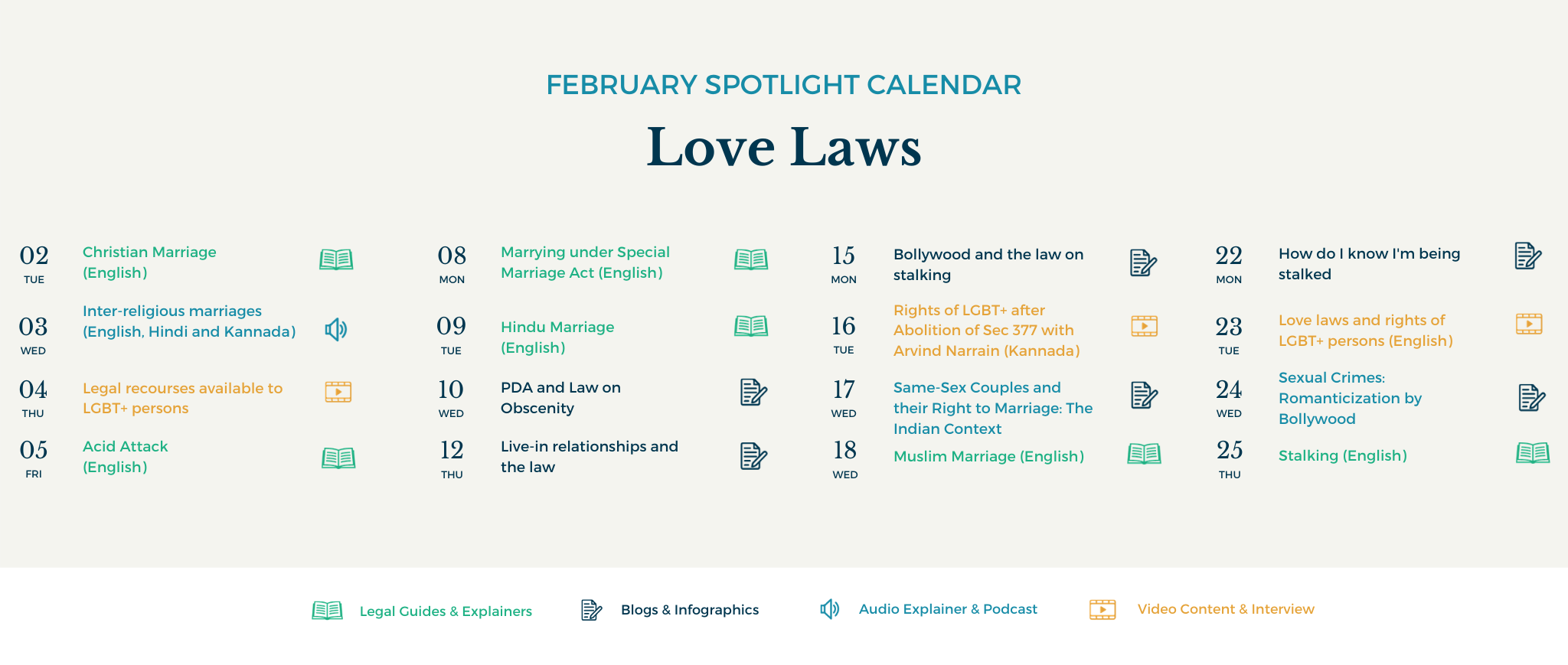

New Explainer: Christian Marriages
Marriages in India are mostly governed by personal law of the religion of the couple. For Christians, that law can be found in the Indian Christian Marriages Act, 1872.
Read our new #explainer on Christian Marriages in detail here.
Video: Legal Recourses Against Violence Faced by LGBT+
While Sec 377 has been read down, members of LGBT+ community continue to face violence and harassment. Watch this video to know what are the legal recourses available to persons facing violence based on their gender identity or sexual orientation.
Explainer: Acid Attack
Acid attack is a form of violence against women where the perpetrator splashes a person or object with acid in order to deface or kill them. To know more about the filing complaints of acid attack, rights of victims and punishments for offenders, read our explainer.
Guide: Marrying under the Special Marriage Act
How can two people of different religions get married without conversion? The Special Marriage Act lays down the process. Want to know more? Read our Guide on Inter-religious Marriages that makes the steps for an inter-religious or inter-faith civil marriage easy to understand.
Explainer: Hindu Marriage
The classic Bollywood image of a couple going around a fire does not make a legal Hindu wedding. There are many other rules, like being of marriageable age and getting the marriage is registered. To know more about these rules and conditions, read our explainer on Hindu Marriages.
Image: PDA and Law on Obscenity
Do you know if acts of public display of affection like kissing, hugging or holding your partner’s hand in public spaces illegal? Check out our latest post on PDA and obscenity to find out more.
Blog: Live-in Relationships and the Law
Where do live-in relationships stand in the eyes of the law? Do you have any #rights at all? Read more about it on our blog here.
Post: Bollywood and the Law on Stalking
Bollywood and its portrayal of stalking and harassment in the name of love is often a topic of discussion. Check out our post on some examples of what truly amounts to stalking, as a primer on what NOT to do.
Video: Rights of LGBT+ After Abolition of Sec 377 with Arvind Narrain
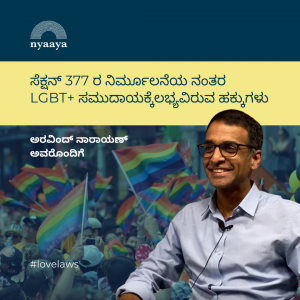

The famous Navtej Singh Johar case read down Sec 377 and decriminalised homosexuality. But do we know what the #rights of LGBT+ persons are now? Watch these interviews with Arvind Narrain to learn about the laws that restrict love and the recourses available to LGBT persons under the post-Navtej regime.
Blog: Same-Sex Couples and their Right to Marriage: The Indian Context
The Supreme Court says the right to marry is a part of the #righttolife under Article 21 of the #Constitution. But does this translate into our #marriagelaws? Read this blog to know more about whether the Indian law accommodates same-sex marriages in light of the Supreme Courts’ ruling.
Explainer: Muslim Marriage
Read our explainer that gives broad guidelines on Muslim marriages that are generally applicable irrespective of sects and schools of law.
Post: How Do I Know I'm Being Stalked
Has someone ever insisted on calling, messaging or DMing you over and over, even though you have shown no interest in talking to them? This amounts to stalking which is a crime under Indian law. Check out our post on how to identify stalking and what behaviors are illegal and how to complain.
Video: Love Laws and the Rights of LGBT+ Persons
Navtej Singh Johar vs. Union of India overturned an archaic provision from India’s penal law and granted the LGBT community equalrights and protection under law. But we wondered what rights that members of the LGBT+ community received after the judgment? Can same-sex couples now marry under Indian law? What is the legal recourse available to a person when they face discrimination and violence on the basis of their gender identity or sexual orientation? Watch our video to find out.
Blog: Sexual Crimes: Romanticisation by Bollywood?
The portrayal of sexual harassment in Bollywood has always been a concern. Read our blog to know more about sexual crimes in the iconic DDLJ.
Explainer: Stalking
Want to learn how to identify stalking and know about the punishment for this crime is? Read our explainer to know more.

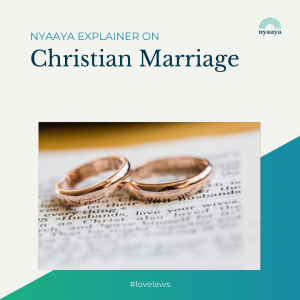
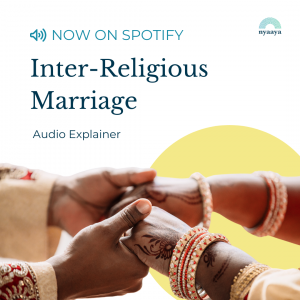
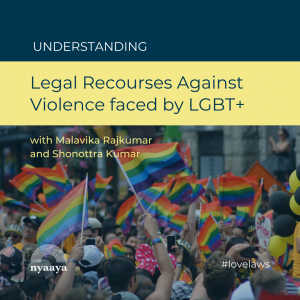

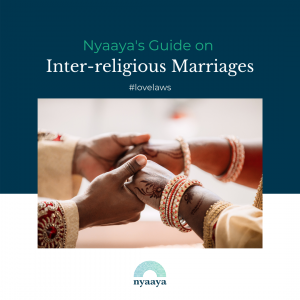
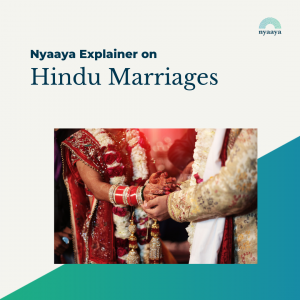

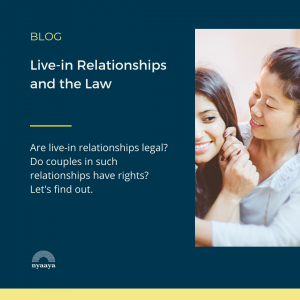
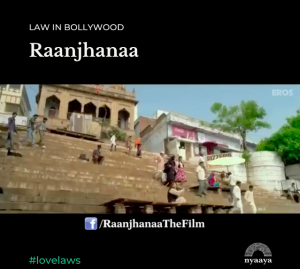
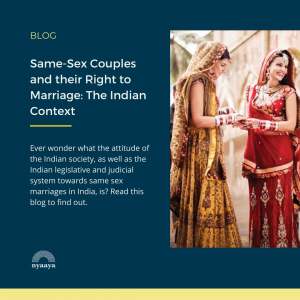
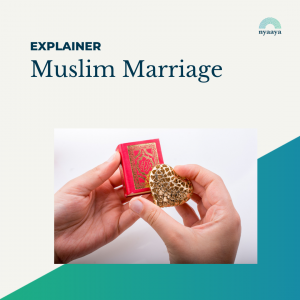
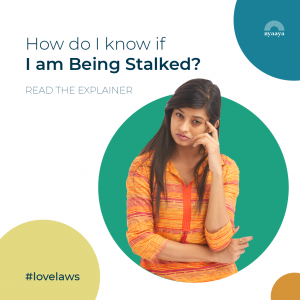
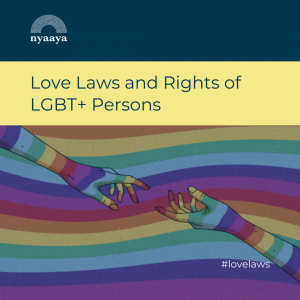
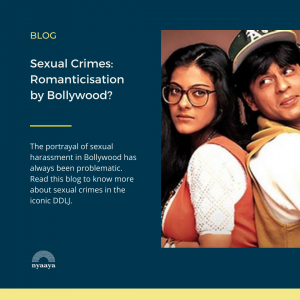
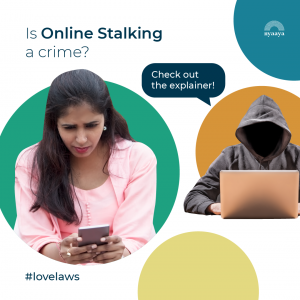


Leave a Comment